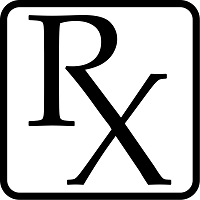Last Updated on November 7, 2021
How do I fill a prescription for my meds in Israel?

The Health Basket (Sal Briut)
Israel’s health-basket (Heb: sal briut) offers a large selection of medication for all types of illnesses and ailments. However, not all the drugs you are familiar with, from your country of origin, are available here or are included in the health basket.
Make sure that details of all your required medications are included in the doctor’s report you bring with you when you relocate to Israel.
There is a large selection of imported medications available here, however if the medication you require is not available or is not in the health basket, your doctor may be able offer you one that is locally manufactured or a generic equivalent.
Health Fund Participation
You will not pay the full price for medication if it is covered by the “Sal Briut”. You are responsible for a percentage and the Health Fund covers the rest. Check on health-fund participation fees before you become a member of the fund. You may be required to pay as little as 10 per cent of the cost of the medicine or as much as 90 per cent.
- Navigate Israel’s medical & healthcare system with these medical resources
- Hebrew English medical terminology with transliterations
Your prescription
You can have your prescription filled at the pharmacy. Check that your local pharmacy works with your Health Fund. You can also have your prescriptions filled at the Health Funds’ own pharmacy. These are usually located at the main branch of your health fund in your city. These pharmacies may also discount their prices a little on over-the-counter – OTC – pharma items)
At your doctor’s appointment, you will be given a copy of your prescription. (Clalit and Maccabi no longer issue paper prescriptions – they are accessible online). The prescription will include the brand name, generic name and dosage instructions. The doctor’s license number, signature and stamp validates the prescription. There is usually an expiry date on the prescription and the prescription cannot be filled after this time unless your doctor requests and approves an extension.
If you have a chronic condition, your specialist will give you 3 prescriptions one for each of the following three months. When the 3 months are up you can ask your family doctor to issue a repeat prescription.
If you are seeing a specialist privately (not via Kupat Holim), he will prepare a report including the recommended medication. If the medication is included in the Sal Briut, you must take the report to your family doctor and he will issue the prescription. If the medication is not in the Sal Briut, you are responsible for the full cost of the meds.
OTC’s – over the counter medications/non-prescription medications are available at pharmacies. Some supermarkets may keep basic first aid medication and supplies.
Remember – Safety First!
- Always read the package insert, the literature is mostly provided in English, Hebrew, Arabic, Russian and Amharic.
- Consult your doctor or pharmacists if you have any doubts regarding your medication.
- Please keep medications out of the reach of children
- Do not share your medication with anyone else.
- Don’t keep any unnecessary medication in the house, and destroy any medication that has passed its expiry date
- Many medications look the same so wear your glasses and make sure you are taking the right tablet
Tips for Olim
- When you relocating or coming on Aliyah, bring a 3-6 month supply of your prescription medication with you. This gives you enough time to find a new doctor.
- If you have a prescription from abroad, your new physician in Israel will prescribe a local equivalent.
- First prescriptions will not be issued without a physical examination.
- Keep a note of all your prescription medications, trade and generic names as well as the dosage, in your smartphone. This way, you are able to give this important information to any medical professional who may need it, at any time. This is especially useful in the initial stages of your aliyah and relocation when you may be going from doctor to doctor and are not yet familiar with local brand names.
At the pharmacy
When paying for your medication at the pharmacy, you will be required to present your Health Fund membership card.
Check the dosage instructions with the pharmacist and that the dosage is clearly marked on the package. The dispensing of medications and labeling of instructions in Israel, are not the same as in other countries.


